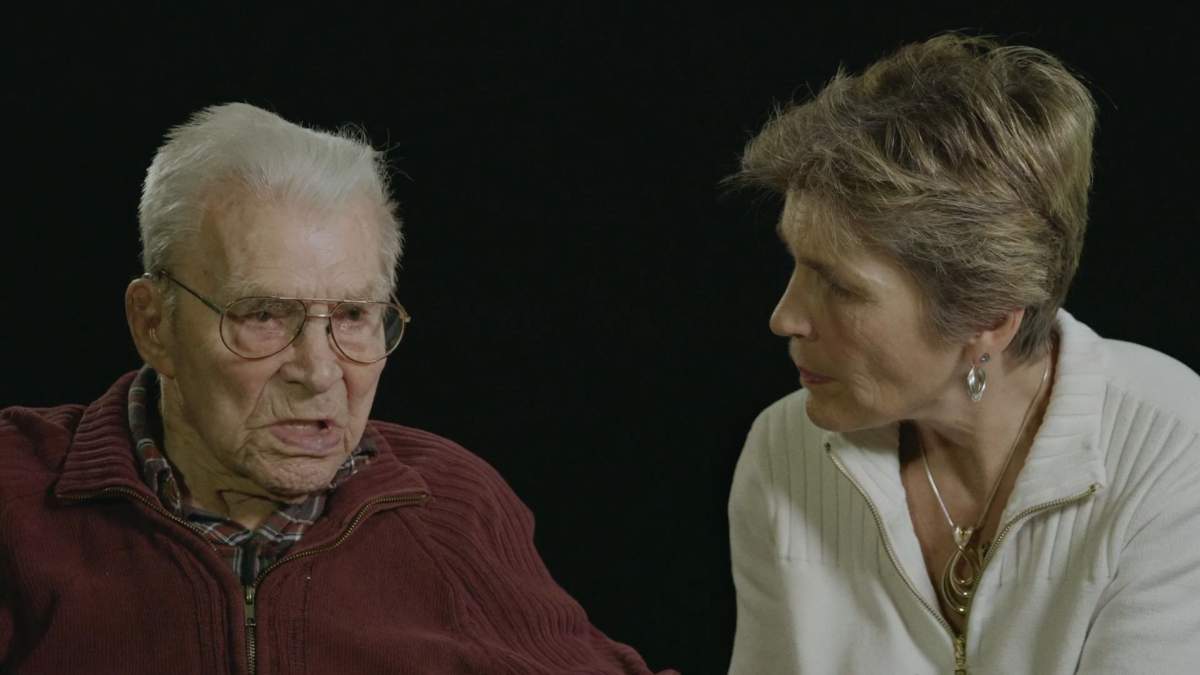A new documentary film highlighting the horrors of a prisoner of war camp in Hong Kong during the Second World War has a strong Winnipeg connection.

A local soldier, George Peterson — the last surviving Winnipeg Grenadier taken as a prisoner of war — tells his story in The Fence, a documentary by filmmaker Viveka Melki about atrocities witnessed by both soldiers on the inside of the camp and civilians on the outside.
Peterson’s daughter, Pat, appeared in the film alongside her father and told 680 CJOB that hearing his stories was eye-opening to her as well, as George didn’t speak of his wartime experience when she was growing up.
“I’ve learned so much more as an adult,” said Pat. “We’re a family of three daughters, and dad never spoke of the atrocities that he had been through. It’s only in my adult years that I’ve truly understood what my dad had gone through… and his comrades.”

Pat said George, later in life, spoke to school groups about his experiences, and was very involved in Remembrance Day events and education.
“I really feel my dad felt an obligation to educate even though he couldn’t do it at home.

Get daily National news
“I think he felt the importance of other children and their families knowing what he went through… but he would only answer questions he felt comfortable with.”
“I have such a different understanding of my dad and our family life… because of his circumstances. He was 20 years old. I look at a 20 year old — would I have had the responsibility to leave my family as my dad did, and his friends, his buddies… to go off and face the atrocities he was about to endure?”
The Fence‘s director, Melki, told 680 CJOB she was honoured to have George’s involvement in the film, as well as Pat’s — which wasn’t planned, but was a positive addition to the film.
“It was a surprise that she came in on that interview,” said Melki. “Our main concern was the health — mental, spiritual and emotional health — of George at that moment.
“As filmmakers, we have to have a responsibility to step back and understand that this has gone beyond a film. It’s about healing, it’s about a process, and we are witness to something that we need to consent to continue listening to.”
Melki said part of the appeal of making the film — which focuses on George’s story, as well as the experiences of other prisoners of war and civilians including a young Russian girl whose father was held captive behind the titular fence — was highlighting a potentially lost piece of history.

“For me, today, we’re talking about a story that is nowhere in the history books. I decided to spend nine years making a film, finding the research that showed the suffering on both sides of the fence,” she said.
“I’m moved beyond words when I talk about George and his family. We have to ask what our veterans saw — not only what they suffered themselves, but what were they witness to, through a fence that they could see through… it wasn’t a wall.”
Melki said the story looks at a similar point in history from multiple angles and examines the shared trauma on all sides.
“I think war happens on landscapes that are not separate from each other,” she said.
“Starvation was occurring within Hong Kong and within the camp … and the Japanese soldiers were starving also. I think sometimes we put things into segments and into boxes, when really it’s one landscape that was occurring at one time.”
The film airs Sunday on the Documentary Channel, but Melki said she intends to bring it to Winnipeg for free public viewings once the COVID-19 pandemic is over.













Comments